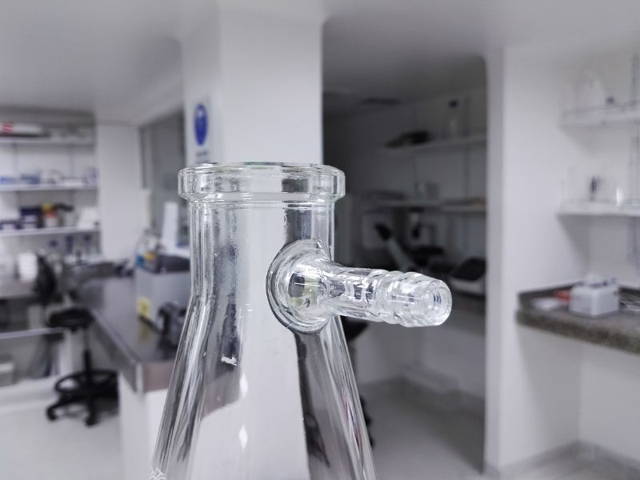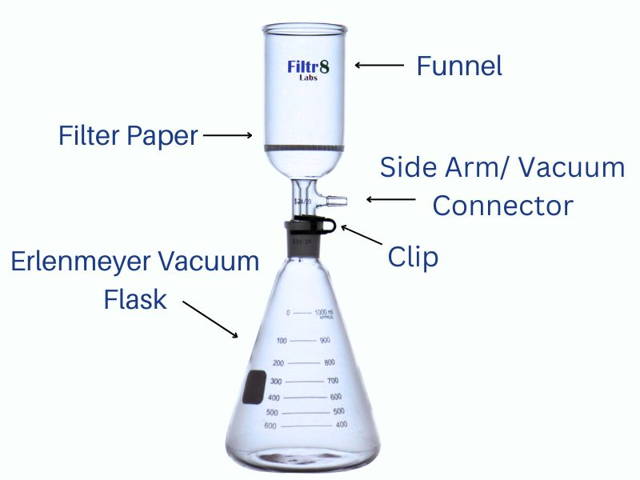Lab Filter Kits for Beginners
What You Need to Know
Lab Filter Kits
Beginner's Guide
Free USA Delivery/ Returns
12-Month Warranty
One Day Handling Time
Free USA Delivery/ Returns
12-Month Warranty
One Day Handling Time
Free USA Delivery/ Returns
12-Month Warranty
One Day Handling Time
Benefits of using a lab filter kit
Lab filter kits offer several benefits compared to other filtration systems. Here are some of the key advantages:
1. Convenience: Lab filter kits are designed to provide all the necessary components in one package. This includes the filtration apparatus, filter paper, and accessories like tubing and vacuum connectors. This makes it easier for beginners to set up and use the filtration system without having to source individual components.
2. Versatility: Lab filter kits are available in various configurations, allowing users to choose the most suitable setup for their specific application. Whether you need to filter liquids, gases, or even particulate matter, there are filter kits available with different pore sizes and media types to cater to your needs.
3. Cost-effective: Purchasing a lab filter kit can often be more cost-effective than buying individual components separately. Manufacturers typically offer package deals, providing better value for money compared to purchasing each component individually. Additionally, some filter kits come with replaceable filter media, allowing users to change only the filter instead of the entire system, further reducing long-term costs.
4. Ease of use: Lab filter kits are designed for beginners, making them user-friendly and easy to operate. The kit usually includes clear instructions on how to set up and maintain the filtering flask, minimizing the chances of errors or complications.
5. Consistent performance: Lab filter kits are manufactured with precision and quality control, ensuring consistent performance and reliable filtration results. This is particularly crucial in laboratory settings where accuracy and repeatability are of utmost importance.

Benefits of Using a Lab Filter
Lab filter kits offer several benefits compared to other filtration systems. Here are some of the key advantages:
1. Convenience: Lab filter kits are designed to provide all the necessary components in one package. This includes the filtration apparatus, filter paper, and accessories like tubing and vacuum connectors. This makes it easier for beginners to set up and use the filtration system without having to source individual components.
2. Versatility: Lab filter kits are available in various configurations, allowing users to choose the most suitable setup for their specific application. Whether you need to filter liquids, gases, or even particulate matter, there are filter kits available with different pore sizes and media types to cater to your needs.
3. Cost-effective: Purchasing a lab filter kit can often be more cost-effective than buying individual components separately. Manufacturers typically offer package deals, providing better value for money compared to purchasing each component individually. Additionally, some filter kits come with replaceable filter media, allowing users to change only the filter instead of the entire system, further reducing long-term costs.
4. Ease of use: Lab filter kits are designed for beginners, making them user-friendly and easy to operate. The kit usually includes clear instructions on how to set up and maintain the filtering flask, minimizing the chances of errors or complications.
5. Consistent performance: Lab filter kits are manufactured with precision and quality control, ensuring consistent performance and reliable filtration results. This is particularly crucial in laboratory settings where accuracy and repeatability are of utmost importance.


Components in a lab filter kit
Lab filter kits typically include several components that are essential for filtration processes in a laboratory setting. The specific components may vary depending on the manufacturer and the purpose of the kit, but here are some common components you can expect in a vacuum filtration kit:
1. Filter Flask: A filter flask, also known as a Buchner funnel, is a glass container with a flat bottom and a side arm for connecting to a vacuum source. It serves as the main vessel for holding the filtration setup. They are usually made of borosilicate glass which can be subjected to higher temperature for sterilization. Filtr8 flasks are supplied in 500ml or 1000ml volumes.
2. Vacuum Pump: A vacuum pump is used to create suction or negative pressure in the filter flask, allowing the filtration process to occur. It helps in speeding up the filtration process by pulling the liquid through the filter.
3. Filter Funnel: A filter funnel is a cone-shaped glass or plastic funnel that is attached to the filter flask. It holds the filter paper or membrane through which the liquid is passed for separation. Filtr8 flasks are supplied in 250ml or 300ml funnels.
4. Filter Paper or Membrane: Filter papers are porous papers made of cellulose or other materials. They are used to trap solid particles and separate them from the liquid. Alternatively, a lab filter kit may include a membrane filter, which is a thin, microporous film that performs a similar function.
5. Rubber Stopper and Vacuum Hose: A rubber stopper is used to securely attach the filter flask to the filtering funnel. A vacuum hose connects the vacuum source to the side arm of the filter flask, allowing the suction to be applied. Alternatively some filtration kits will use a precision ground glass joint to connect the components. This makes for easier assembly and disassembly
Components in a lab filter kit
Lab filter kits typically include several components that are essential for filtration processes in a laboratory setting. The specific components may vary depending on the manufacturer and the purpose of the kit, but here are some common components you can expect in a vacuum filtration kit:
1. Filter Flask: A filter flask, also known as a Buchner funnel, is a glass container with a flat bottom and a side arm for connecting to a vacuum source. It serves as the main vessel for holding the filtration setup. They are usually made of borosilicate glass which can be subjected to higher temperature for sterilization. Filtr8 flasks are supplied in 500ml or 1000ml volumes.
2. Vacuum Pump: A vacuum pump is used to create suction or negative pressure in the filter flask, allowing the filtration process to occur. It helps in speeding up the filtration process by pulling the liquid through the filter.
3. Filter Funnel: A filter funnel is a cone-shaped glass or plastic funnel that is attached to the filter flask. It holds the filter paper or membrane through which the liquid is passed for separation. Filtr8 flasks are supplied in 250ml or 300ml funnels.
4. Filter Paper or Membrane: Filter papers are porous papers made of cellulose or other materials. They are used to trap solid particles and separate them from the liquid. Alternatively, a lab filter kit may include a membrane filter, which is a thin, microporous film that performs a similar function.
5. Rubber Stopper and Vacuum Hose: A rubber stopper is used to securely attach the filter flask to the filtering funnel. A vacuum hose connects the vacuum source to the side arm of the filter flask, allowing the suction to be applied. Alternatively some filtration kits will use a precision ground glass joint to connect the components. This makes for easier assembly and disassembly



